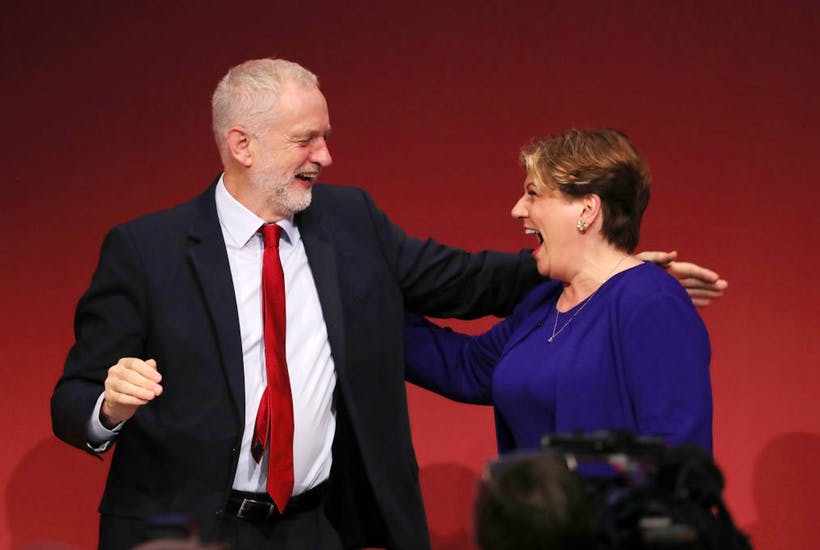Labour is currently all at sea over class – and at risk of drowning. For a party whose members imagine themselves to be the only legitimate representatives of working people the last election has provoked an existential crisis. George Orwell once said Britain is ‘the most class-ridden society under the sun’. That may no longer be the case, but Labour is determined to prove Orwell right.
In December, Boris Johnson smashed Labour’s ‘Red Wall’ and captured constituencies in the north and midlands whose histories evoked some of the greatest moments of proletarian struggle. The resulting symbolism is painful for Labour: the Durham Miners Gala will now take place surrounded by Conservative-held seats. But the reality is even more unpalatable: Labour attracted just one third of working-class voters.
And yet Labour’s manifesto promised the greatest redistribution of wealth and power to the working class in Britain’s history. Supporters of Jeremy Corbyn consistently deny that Labour’s defeat was a reflection on the radicalism of that document: it was Brexit that caused the ‘Red Wall’ to crumble. But even they concede Brexit was not the only reason for defeat. Their answer however is not that the policies were too extreme but that workers were insufficiently class conscious so Labour’s task is now to make them so. This is the essential insight that underpins Rebecca Long-Bailey’s leadership bid.
It is no surprise that, as the flag carrier for Continuity Corbynism, Long-Bailey emphasises her working-class roots, being the daughter of a Salford docker. So have Angela Rayner and Richard Burgon, both running for deputy leader in support of Long-Bailey’s campaign. But of the three, only Rayner can truly claim a pure proletarianism: Long-Bailey spent much of her childhood in leafy Cheshire while Burgon’s father was a head teacher and his uncle a Labour MP. If other leadership candidates have real working-class roots they have had to fight hard for them to be recognised: Emily Thornberry – otherwise known as Lady Nugee thanks to her marriage to a High Court judge – has a persona some see as snooty. But Thornberry grew up in a council house in a single parent family: her family were so poor they had to put down their cat. Similarly, some of front runner Keir Starmer’s hard left critics believe he was born into the elite, but his father was a toolmaker and his mother a nurse.
This interest in – and confusion over – the backgrounds of those contesting the leadership and deputy leadership is new: few considered Corbyn’s privileged background relevant in 2015. But if it is an indication of the party’s current crisis of identity then it has been a long time coming.
At 77 per cent, Labour’s members are disproportionately middle class, and have been for many decades. But such is middle-class dominance in London today, in Haringey some members have suggested the creation of separate working-class sections within local parties to make sure the proletarian voice is not overwhelmed. Perhaps of even more concern, the trade union movement, with which the party so strongly identifies, accounts for less than ten per cent of employees in the private sector.
If this is a crisis for the Labour party as a whole it is however one most deeply felt for those who believed Corbynism would revive the party’s fortunes by embracing a hyper-charged state socialism. But if the Corbyn experiment was attractive to younger middle-class voters it accelerated Labour’s decline amongst the manual working class.
Labour has, however, not always been the party of class conflict nor one which exclusively tied its fortunes to a working class defined by trade unions and manual occupations. It’s original Clause Four drafted in 1918 referred to ‘workers by hand or brain’ as those who would benefit from its policies. And when it has done well – in 1945, 1964-6 and 1997 – the party has appealed to a broad coalition of voters from diverse backgrounds, indeed to the British people as a whole.
The party’s historic attitude to class has never been as Corbynite myth has it. When the German Social Democrat Egon Wertheimer attended his first Labour meeting in 1924, he was shocked. For one of the speakers was ‘a young man, with the face of the ruling class’. This ‘typical aristocrat’ was greeted by chants of ‘For he’s a Jolly Good Fellow’. And when his wife spoke, a neighbour informed Wertheimer, with blushing pride, that she was the daughter of Lord Curzon. For this meeting was addressed by Sir Oswald and Lady Diana Mosley just after they had joined the party. Wertheimer noted that the Labour crowd’s warm welcome would not have been repeated in Germany where the left’s attitude to class was rigid and dictated by Marxist theory.
If the Mosley’s Labour story did not end happily, it is perhaps time for the party – and whoever comes to lead it – to embrace this more generous and less prescriptive attitude to class so that it may become again a broadly-based national party of all the people: after all, Labour’s founding ideal was to create a classless society not one obsessed by it.
Steven Fielding is professor of political history at the University of Nottingham and is writing ‘The Labour Party: from Callaghan to Corbyn’ for Polity Press, to be published in 2021. On Twitter he is @PolProfSteve






Comments